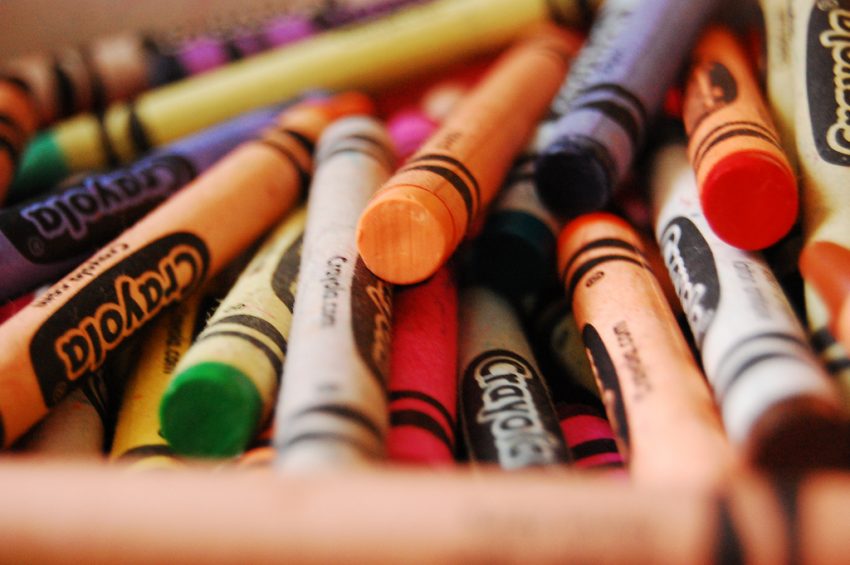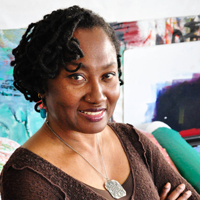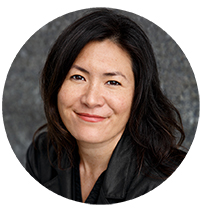
3 Tips For Talking About Diversity
 Last Thursday I attended a wonderfully engaging talk at California Institute of Integral Studies (CIIS) on “Big Ideas at CIIS with Denise Boston: How to Talk About Diversity.” Denise Boston, PhD, RDT is the dean of diversity and inclusion at CIIS and has done some provocative exercises with CIIS faculty to help them engage with the topic of diversity and inclusion.
Last Thursday I attended a wonderfully engaging talk at California Institute of Integral Studies (CIIS) on “Big Ideas at CIIS with Denise Boston: How to Talk About Diversity.” Denise Boston, PhD, RDT is the dean of diversity and inclusion at CIIS and has done some provocative exercises with CIIS faculty to help them engage with the topic of diversity and inclusion.
In one instance she sent the white faculty into one room and the rest of the faculty into another to have separate conversations. The very act of dividing them created discomfort in the white faculty that initiated new and rewarding conversations around white privilege.
Boston shared her three suggestions for talking about diversity:
- Lifelong learning through self-reflection
- Connect with a racial affinity group
- Be in an integrated group
1) Lifelong learning through self-reflection
“If you don’t know yourself, you’re going to let someone else write your script.” — Denise Boston
Learn about your history
Where did your parents come from? What was the racial/ethnic make-up of your parents, grandparents, great-grandparents? What was their class? What were the religious beliefs of your ancestors? Where did they live? This exploration can be done by asking family members, journaling your experience, and producing a cultural genogram.
I learned that I had grandparents on either side of WWII (Japan/America) and this made visiting Hiroshima very challenging for me. I was simultaneously struck by helplessness, outrage and shame. I felt the helplessness and outrage as I identified with the victims and, at the same time, the shame of my connection with the aggressor. It was as though I could feel the war inside of myself.
Learn about your implicit biases
The Harvard Implicit Association Test (IAT) is a great resource for learning more about this. I’ve also written before about unconscious biases and how it manifests. How might these biases get in your way? How might these biases affect how you see or respond to certain groups of people? How might it affect who you invite to your events or hire, and who then become the people you trust to shape your opinions and beliefs?
What are you doing to cultivate cultural awareness?
What are you reading? Here are some books I’ve found helpful on this topic recently:
- Waking up White and Finding Myself in the Story of Race by Debby Irving
- The New Jim Crow: Mass Incarceration in the Age of Colorblindness by Michelle Alexander
- Born on the Edge of Race and Gender: A Voice for Cultural Competency by Willy Wilkenson
What are you watching? Here are some videos readily available online:
- People Like Us (PBS) How do income, family background, education, attitudes, aspirations and even appearance mark someone as a member of a particular social class?
- True Colors (1991) ABC’s Prime Time with Diane Sawyer looking at race discrimination in everyday life
- Is Racism Over Yet? by Laci Green
2) Connect with a (racial) affinity group
Boston’s examples centered primarily around race when offering suggestions for talking about diversity. However, affinity groups could easily extend to other dimensions of diversity such as disability, age, veteran status, etc.
She suggested creating a group to learn more about your racial identity. If you are white, you can learn more about what racial privilege looks like. Boston suggested, “Connect with the history of being white in America.”
Boston suggested, “Connect with the history of being white in America.”
I’m really enjoying the Debby Irving book I mentioned above, “Waking up white and finding myself in the story of race.” She shares her personal journey learning what it means to be a white American. The book is filled with important facts that did not end up in my high school or college education.
If you’re a person of color, having a space you can feel safe is important. In this space you can not only explore and get support for the racism that you experience on a day-to-day basis, but also explore the internalized racism that might be limiting you.
As a mixed-race person I have found it tremendously helpful to talk with other mixed individuals even if we did not share the same cultural mix. When I went to the Mixed Remixed festival in LA last year, it was one big affinity group!
3) Be in an integrated group
Consider placing yourself in a group with people different from yourself. You could go to a cultural event or festival or locate a diverse Meetup.com group. You can also just strike up a conversation with a stranger. Boston said, “We need to know the lived experiences, we need to care, and we need to have conversations.”
“We need to know the lived experiences, we need to care, and we need to have conversations.”
What are your thoughts?
What other things help you talk about Diversity?

 Previous Post
Previous Post




